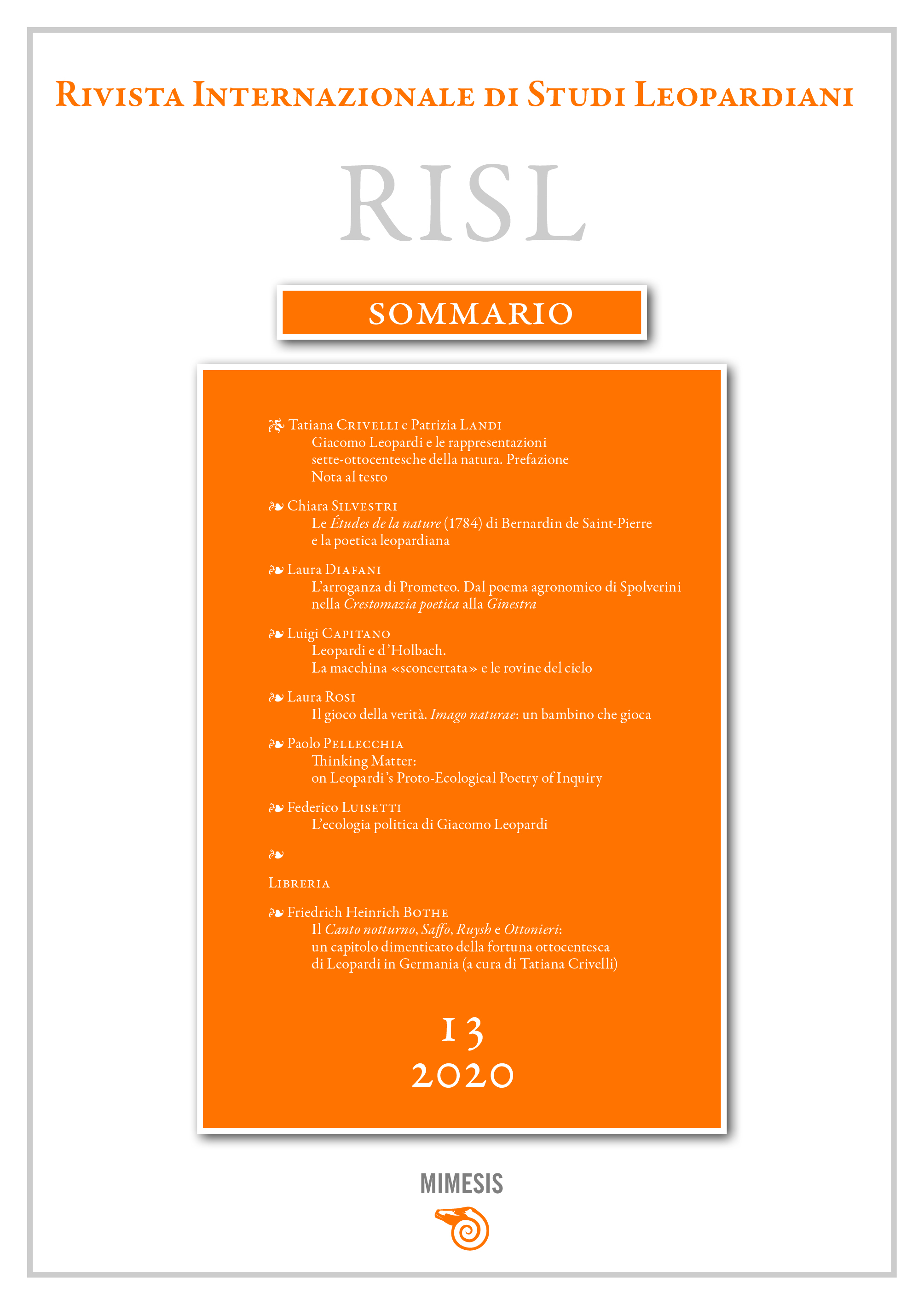Thinking Matter: on Leopardi’s Proto-Ecological Poetry of Inquiry
Parole chiave:
ecocritica, John Locke, materialismo a-dialettico, silenzio, romanticismo, poesia interroganteAbstract
The emphasis that scholarship has placed on the integral autobiographic character of Leopardi’s oeuvre draws his work near to the contemporary Romantic context, one defined by the conflicting relationship
between a hypertrophic poetic human subjectivity and a natural nonhuman object that, deprived of its own autonomy, is reduced to a mere representational embodiment of human imagination. I intend to offer an alternative interpretation of Leopardi’s production by underscoring the crucial role that John Locke plays for Leopardi’s philosophical understanding and aesthetic representation of nature. By focusing on An Essay Concerning Human Understanding, along with Francesco Soave’s translation of Locke’s treatise, in the first part I propose three reasons to justify the influence that Locke exerts over Leopardi’s materialistic speculations vis-à-vis the generally-agreed-upon role played by the French Idéologues. In the second part of the article, I show how under the implicit sway of Locke, Leopardi’s poetic production turns into an aesthetic space where proto-ecological responsibility becomes possible. I use Canto notturno di un pastore errante dell’Asia as a representation of a subjectivity intent to enfranchising nature and emancipating it from the hypertrophy that characterizes the canonically understood Romantic poetic subject. The result of such an effort is a kind of poetry that I call “of inquiry” through which the subject gives back to nature its voice, one that is constituted by the very silent presentiality of the matter that constitutes it.






